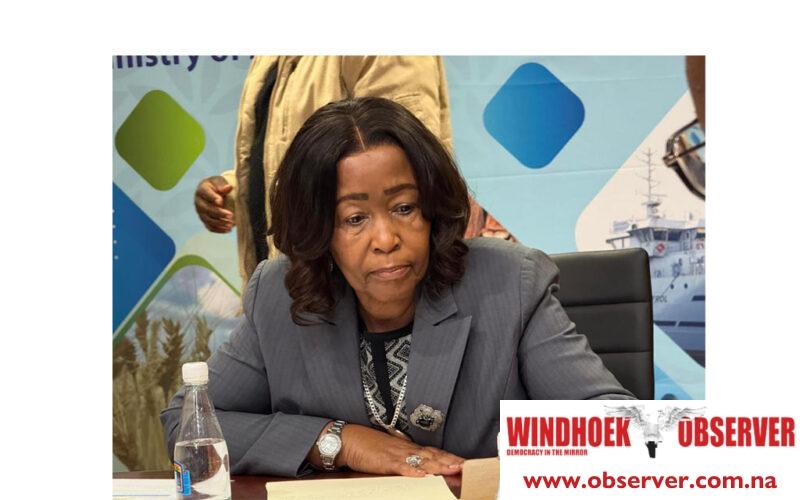Hertta-Maria Amutenja
The Ministry of Agriculture, Fisheries, Water and Land Reform has condemned the eviction of generational workers from farms, calling the practice “inhumane” and “unacceptable”.
Minister Inge Zaamwani spoke out during a handover of resettlement allotment letters in Windhoek on Tuesday.
“The practice of forcefully evicting long-serving generational farm workers and abandoning them in corridors next to the roads is not only inhumane but is also unacceptable. We urge all farm owners to exercise restraint from such practice and embrace dialogue in order to seek dignified and sustainable solutions, which uphold the dignity and rights of such individuals, who have contributed to our farms for generations,” she said.
Zaamwani said the government has worked to address historical injustices since independence, but many farmworkers still face overcrowding and forced removals.
She said this is a major problem in Erongo, Hardap, Kunene, //Kharas, Omaheke, Oshikoto, and Otjozondjupa.
Since 1990, the government has used the willing-seller-willing-buyer model to redistribute 15 million hectares of commercial land.
Five million hectares are set aside under the National Resettlement Program, and ten million are under the Affirmative Action Loan Scheme.
Zaamwani emphasised the urgent implementation of the resolutions from the 2018 Second National Land Conference, with the aim of providing support to generational farmworkers and those residing in overcrowded areas.
In September 2024, the ministry acquired two farms in Omaheke, which have been subdivided and allocated to affected people.
She said the ministry is working to reduce overcrowding on resettlement farms and ensure the San communities and farmworkers get land.
She urged farm owners, workers, and other stakeholders to avoid disruptive evictions and instead work together.
Zaamwani asked beneficiaries to use the land wisely and sustainably.
She called on traditional leaders and local authorities to make sure the land reform process remains transparent and fair.
Erongo Governor Neville Itope said there have been no reported eviction cases in his region.
“We do not have any cases of that sort in the region, and I have not received reports to my office on such incidents,” he said.
Political analyst Ndumba Kamwanyah welcomed Zaamwani’s stance and said it shows political will to protect farmworkers.
He criticised past leaders for ignoring the needs of these workers.
“The previous ministers and administrations have betrayed the generational farm workers. It is important that the government should imperatively address injustices in land use and ownership,” Kamwanyah said.
He said that without proper oversight and long-term support, land reform could fail.
“Without proper oversight and long-term support, resettlement may fail to uplift communities. There’s a real risk of land being underused, beneficiaries falling into poverty, or power imbalances simply shifting rather than ending,” he said.
Two months ago, Gerson ‘Gearbox’ Sani Danab, a 61-year-old farmworker, was evicted from Farm Aandrus in the Khomas Region after working and living there for over 40 years.
Danab and his family were left homeless. His case reignited public debate on farmworkers’ rights and land justice in Namibia.




